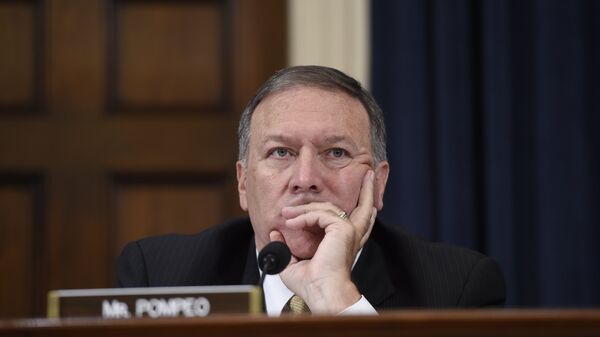"I have every expectation that they will continue to try and do that," Pompeo told the BBC when asked about possible "Russian meddling" in the midterms. "But I'm confident that America will be able to have a free and fair election, that we will push back in a way that is sufficiently robust, that the impact they have on our election won't be great," the director said in an interview published Monday.
Not everyone has been receptive of the CIA chief's claims. A general attitude of skepticism toward statements by intelligence agency heads has been motivated in no small sense by the US intelligence community's insistence, for example, that former Iraqi leader Saddam Hussein had weapons of mass destruction.
"They're not going to go after the US congressional elections. The idea is nonsense," Alexander Mercouris, editor-in-chief of the Duran, told Radio Sputnik's Loud & Clear on Tuesday. Furthermore, "the idea is nonsense that [the Russians] interfered to any significant degree, in any deliberate way, in the US presidential elections," Mercouris said, expressing a view shared by former CIA analyst Ray McGovern and ex-NSA officer Bill Binney.
It would certainly not be the first time the agency misled the public. The CIA later "lied to its overseers and the public" about the efficacy of torture, outgoing Colorado Senator Mark Udall said in his last speech after losing his seat in 2014.
Lying to the public is nearly essential to what the CIA does. A CIA veteran who worked at the agency from 1952 to 1977 explained to a Kentucky newspaper more than 30 years ago that the agency's intentional misinformation campaigns are aimed at gaining support for US foreign policy initiatives.
"Donald Trump won the 2016 election — and it wasn't because of the Russians. After more than a year of extensive investigations, there is not one iota of evidence the election results were hacked or otherwise successfully manipulated by the Russians or anyone else," writes Hans von Spakovsky, formerly a Justice Department attorney and commissioner of the Federal Election Commission under President George W Bush.
"The Russian government did not, through any cyber intrusion, alter ballots, ballot counts or reporting of election results," said Jeh Johnson, secretary of homeland security from 2013 to 2017, in written testimony to the House Intelligence Committee last June.
Perhaps the most pertinent question is, then, why we should believe Pompeo now?


